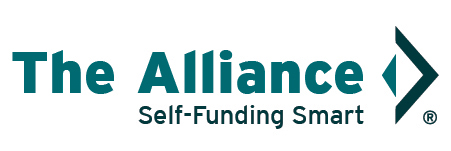$3.4 Trillion in Future Health Care Spend Rests with Millennials
By: Melina Kambitsi, Ph.D. | SVP of Business Development & Strategic Marketing
Millennials make up nearly a quarter of the entire US population, so it’s not surprising they’re worth an estimated $3.4 trillion in future health care spend. But their participation in the current health care marketplace is lacking due to obscure pricing, poor convenience, lack of informational tools, and an outdated patient experience.
participation in the current health care marketplace is lacking due to obscure pricing, poor convenience, lack of informational tools, and an outdated patient experience.
Personalized Primary Care
A Kaiser Health Foundation study found that almost half of millennials aged 18 to 29 did not have a primary care provider (PCP), yet 93% of millennials want to establish a PCP. So why aren’t those connections happening? Millennials want health care that’s personalized – including emotional support.
In other words, millennials care about building an equitable relationship with their PCP and want to feel supported in improving their physical and mental health. More than 80% of respondents in a Welltok survey said they would be better served if their doctor understood them on a personal level.
Lack of Trust
For millennials, that perceived lack of personalization is seemingly producing mistrust with physicians. Per Forbes, “38% [of millennials] say they trust their peers more than their physician. Additionally, over half (55%) said the information they find online is ‘as reliable’ as their doctor.”
Similarly, millennials don’t believe their insurers have their best interests at heart. In a HealthEdge survey of more than 5,000 millennials, over half graded their current health plan as an “F,” with just 53% believing their current plan was the most effective option in administering their benefits.
Lack of Quality Information
We’ve written about price transparency problems (and solutions) in the past, and millennials – perhaps more than any other generation – value accurate cost estimates before undergoing treatment. In fact, millennials are twice as likely than baby boomers to “shop” for cost estimates online. Still, high prices, surprise billing, and lack of quality, accessible information is thwarting their confidence: 79% found health care too expensive, and 77% said costs were too unpredictable.
That lack of confidence has caused over half of millennials to delay treatment or forego it altogether.
Improving Price Transparency
For health care providers, breaking down these barriers is the key to unlocking $3.4 trillion. So how can they do it?
For starters, health care providers and insurers can work together to become more transparent and offer adequate information that’s conducive to “shopping.” Knowing the total price of care before receiving treatment would go a long way towards gaining millennial dollars. Additionally, creating tools – like The Alliance’s Find a Doctor tool – that allow users to search providers by doctor ratings and facility quality would improve the patient experience.
Providers would benefit by catering to Millennial preferences; offering accessible, easy-to-digest information on price and quality would boost consumer confidence and increase health care utilization for millennials. More health care consumers would equate to more money for health systems and better health outcomes for individuals – a win-win.
But while price transparency is gaining national attention and bipartisan legislative support, many health care providers are not yet complying.
The Direct Primary Care Solution
Instead, smart employers are looking towards other solutions to provide their millennial workforces, like Direct Primary Care (DPC) clinics. And rightfully so – DPC is a proven method of improving patient health and lowering the total cost of care.
Direct primary care is holistic, patient-centered care that combines physical, mental, and nutritional health, which creates that trusting patient-physician relationship that millennials crave while utilizing a monthly membership fee that dramatically improves individual access to high-quality care.
To learn about The Alliance’s Direct Primary Care solution, reach out to our Business Development team.
 participation in the current health care marketplace is lacking due to obscure pricing, poor convenience, lack of informational tools, and an outdated patient experience.
participation in the current health care marketplace is lacking due to obscure pricing, poor convenience, lack of informational tools, and an outdated patient experience.